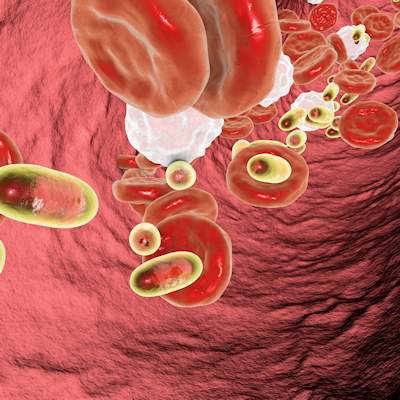April 19, 2023 -- Immunostimulatory nanoparticle prodrugs can focus immune attacks against solid tumors to improve the safety and efficacy of cancer treatments, according to a study in mice.
The study, details of which were published Wednesday in Science Advances, describes the latest application of the novel prodrug platform developed in Jeremiah Johnson's lab at Massachusetts Institute of Technology. In January, Johnson and his collaborators showed how the polymer nanoparticles can carry multiple cancer drugs to improve the efficacy of combination therapies. Now, the team has discussed a new use case.
In the latest study, the researchers used the platform to inactivate immunostimulatory molecules. The molecules, imidazoquinolines (IMDs), typically cause too much systemic inflammation to be used safely in humans. By rendering IMDs inactive until they reach tumors, the scientists sought to give the drugs a favorable risk-benefit profile. As with other projects based on the platform, the resulting drug candidates had a bottlebrush shape, with IMDs bound to the backbone by linkers that cleave inside immune cells.
The collaborators created six bottlebrush prodrugs with different release profiles. Because the prodrugs were identical in size and shape, the researchers were able to assess the effect of the different release kinetics, the only variable.
In preliminary studies in cells and mice, the scientists found the fastest-activating prodrugs caused side effects such as weight loss and elevated cytokine levels. Such effects were absent in mice treated with the medium- and slow-activating prodrugs. The finding suggested that prodrugs with slower release profiles can localize the immune response and avoid the systemic side effects associated with IMDs.
To test that idea, the researchers studied their prodrugs in two mouse models of colon cancer. The prodrugs slowed tumor growth. When combined with a checkpoint inhibitor, a type of drug designed to trigger immune attacks against cancer cells, the prodrugs eliminated tumors in 20% of mice without causing weight loss, elevated cytokine levels, or a reduction in white blood cells.
"Our molecules were able to safely reduce these effects by controlling how much of the active drug is released in the blood," Sachin Bhagchandani, an MIT graduate student and lead author of the study, said in a statement. "If you minimize release of the active compound there, then you're able to get anti-tumor effects at the tumor site without the systemic side effects."
The researchers see applications to use the technology in combination with other drugs that stimulate the immune system, such as the checkpoint inhibitor tested in the study, and as adjuvants to boost the immune response to cancer vaccines.
Copyright © 2023 scienceboard.net










